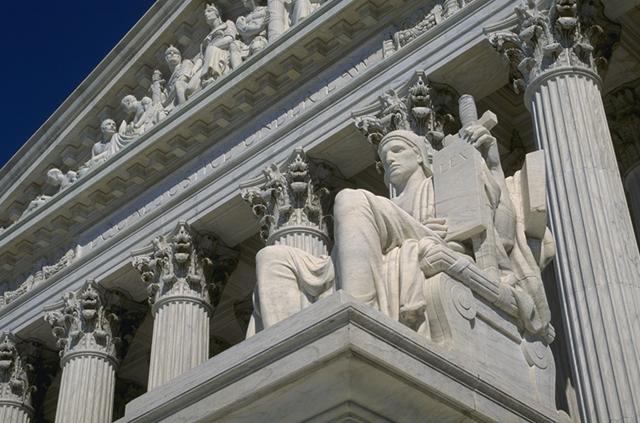Bayer Awaits SCOTUS Decision on Roundup
Bayer AG Has Legal Options Open on Roundup Pending SCOTUS Decision
LINCOLN, Neb. (DTN) -- The Supreme Court on Monday declined to issue a decision on a pending Bayer AG petition to review a multi-million-dollar Roundup product-liability verdict issued by a California court.
Company officials told DTN last week that if the Supreme Court ruled against Bayer, the company would be launching a claims program and undertaking efforts to continue to transition the glyphosate-based product out of the lawn-and-garden market, while maintaining the product's availability to agriculture.
Bayer officials are continuing to weigh what a ruling either way would mean for companies in terms of the costs to bring products to market, and their ability to depend on consistent federal oversight and uniform regulations governing ag chemicals.
In 2019, a jury awarded Edwin Hardeman $80 million in damages after the ruling his non-Hodgkin's lymphoma was caused by his use of Roundup. The damages later were reduced to $25 million.
Bayer argued in its petition to the Supreme Court that the Federal Insecticide, Fungicide and Rodenticide Act, or FIFRA, bars states from adding new label requirements. Bayer has argued federal law pre-empts state law when it comes to Roundup labels.
Bayer won its third-consecutive product-liability trial last week, as a jury in Jackson County, Missouri, on June 9 ruled the glyphosate-based Roundup did not cause non-Hodgkin's lymphoma in plaintiff Allan Shelton. Last year, two other juries sided with Bayer in other similar cases in California.
"The jury's verdict in favor of the company brings this trial to a successful conclusion and is consistent with the evidence in this case that Roundup does not cause cancer and was not the cause of Mr. Shelton's cancer," Bayer said in a statement following that verdict.
Also last week, the European Chemical Agency found no scientific link between glyphosate use and cancer, https://echa.europa.eu/…
P[L1] D[0x0] M[300x250] OOP[F] ADUNIT[] T[]
The Biden administration drew the ire of agriculture groups and federal lawmakers, when the U.S. solicitor general issued a brief on the Hardeman case calling for the Supreme Court to reject the Bayer petition, https://www.dtnpf.com/….
Bayer also petitioned the court to review a verdict in a Roundup product liability case, Pilliod v Monsanto.
In August 2021, a California state appellate court upheld the verdict that awarded $87 million in damages to Alva and Alberta Pilliod of Livermore, California. The couple had used Roundup at home for about 30 years; later the Pilliods developed similar types of cancers, according to court documents.
In addition, a lawsuit filed by Georgia Roundup plaintiff John Carson also may find its way to the Supreme Court.
On June 8, Bayer urged the U.S. Court of Appeals for the 11th Circuit in Atlanta to rule state law failure-to-warn claims are preempted by federal law. Such a ruling would be in conflict with a previous ruling by the U.S. Court of Appeals for the Ninth Circuit in California and likely would send the case to the Supreme Court.
In July 2021, Bayer announced a five-point plan to manage and resolve future litigation risk from Roundup. Among the moves, Bayer said it would stop selling Roundup products for residential use beginning in 2023.
Bayer has settled about 107,000 cases out of 138,000. The U.S. District Court for the District of Northern California last year rejected the $2 billion settlement, expressing concern it would not adequately address the concerns of families who may later be diagnosed with non-Hodgkin's lymphoma.
As part of the 2021 Bayer announcement the company said it would be setting aside about $4.5 billion for potential future legal claims and settlements if the Supreme Court did not agree to a review. That would put the total payout of Roundup claims at more than $14 billion.
Bayer acquired Roundup brands as part of its $63 billion purchase of Monsanto. Bayer continues to maintain that glyphosate is safe, regularly pointing out the EPA and many other countries' regulatory agencies support glyphosate's continued use.
But during the past few years, Bayer has lost several lawsuits brought by plaintiffs who alleged their use and exposure to Roundup caused non-Hodgkin's lymphoma and other cancers.
EPA reapproved an interim registration of glyphosate in January 2020. The Rural Coalition, Organizacion en California de Lideres Campesinas, Farmworker Association of Florida, Beyond Pesticides and the Center for Food Safety filed a petition for review in March 2020. Those groups asked a federal court to vacate the decision.
Last year EPA released a biological evaluation of glyphosate's potential effect on endangered species and critical habitats, finding it was "likely to adversely affect" 1,676 listed species and 759 critical habitats, the vast majority of the species and habitats the agency considered.
Read more on DTN:
"Bayer: New Roundup Settlements Unlikely," https://www.dtnpf.com/…
"Bayer Petitions US Supreme Court on Roundup Case," https://www.dtnpf.com/…
Todd Neeley can be reached at todd.neeley@dtn.com
Follow him on Twitter @DTNeeley
(c) Copyright 2022 DTN, LLC. All rights reserved.






